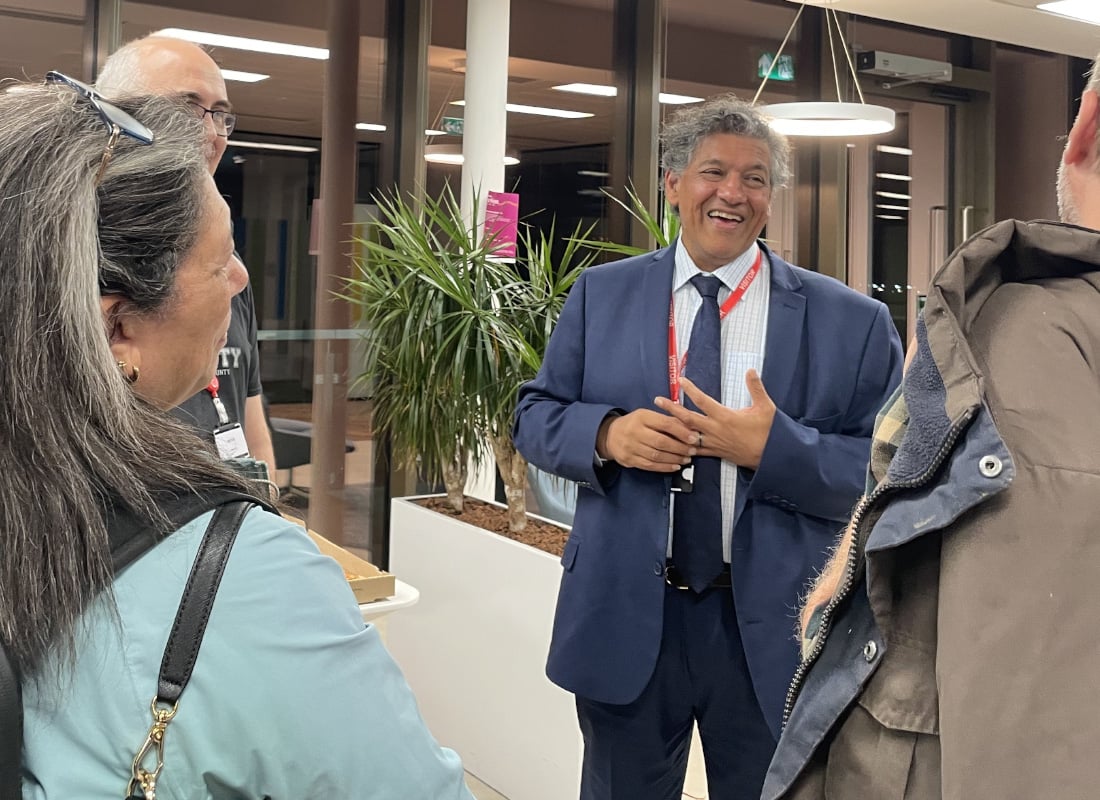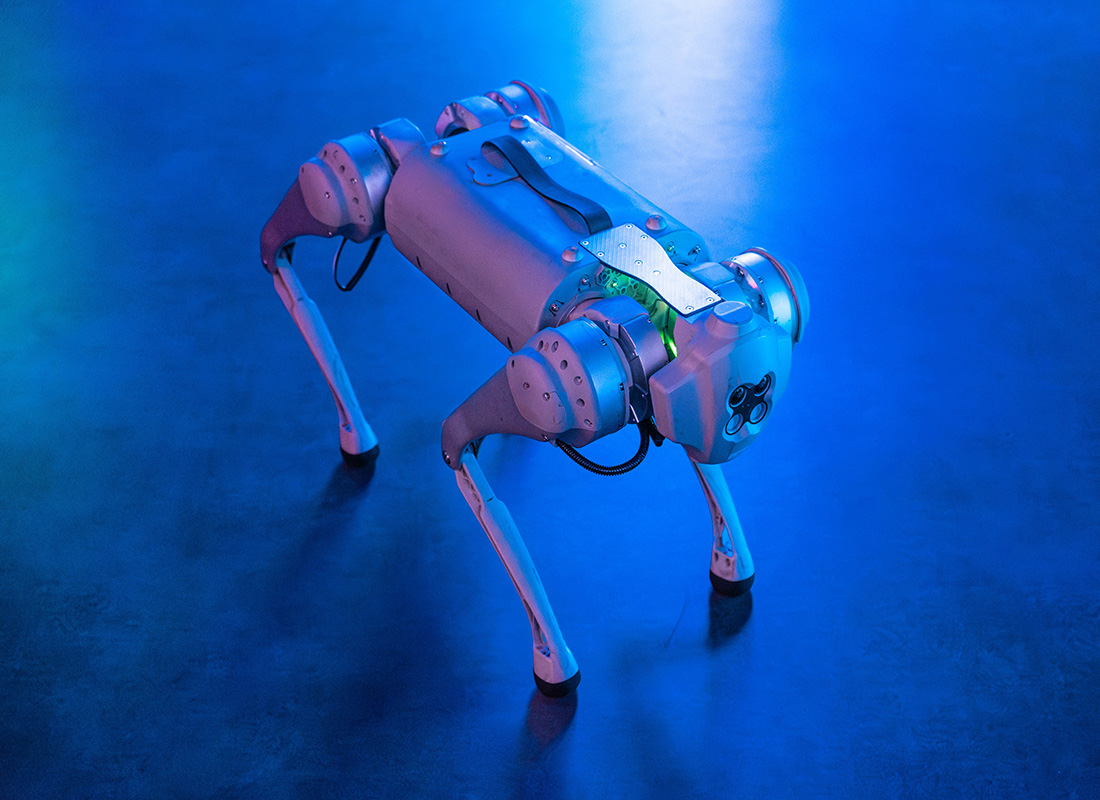 ‘One of my long-standing interests around IT futures has been about the digital skills agenda, especially the role of creativity. Among my former colleagues and associates I have broadly two groups of people who see the world very differently.
‘One of my long-standing interests around IT futures has been about the digital skills agenda, especially the role of creativity. Among my former colleagues and associates I have broadly two groups of people who see the world very differently.
‘I know people who see themselves as IT professionals and others who see themselves as “digital media” or as part of the “creative industries”. Yet look at their underlying technical skills and on paper they look almost identical. It is not what their underlying skills may be in IT, but how they create value by their work that defines them. Much of the talk about digital skills gaps glosses over this important part of the UK economy. Hannah Rudman has recently become a FBCS, to which I add my congratulations. She is one of the people who actually exist in both aspects of this world. I have gained many insights over the years from her, so I have asked her to do a guest spot on this blog to share some of her thoughts.’ Chris Yapp, Future Tech blog.
Chris has been a long time mentor, since our first meeting at the Royal Shakespeare Company in 1999 where I was responsible for new media. Back then, we were grappling with trying to get IP and rights holders such as publishers, archivists, producers and directors to let us digitise the rich assets they held or made of Shakespeare’s work into ‘new media’ such as CD-ROMS! My work demanded an intricate relationship between content and new technologies and collaborations between artists and scientists.
However, it was an almost impossible task because no one in the performing arts and publishing sectors then understood the opportunities or potential business models of digitisation. I left the RSC become a digital transformation consultant and directed national programmes to support digital development, having grown significant understanding of the scale of disruption digitisation was going to have on the creative industries (CI).
Fast-forward seventeen years, and the impact of digitisation on the CI is now a well-known story: an exciting tale of creative destruction; rapid innovation and convergence; re-imagined forms of connectivity with customers and audiences; and new and traditional forms of content being engaged with and enhanced via digital channels and technologies. CI is a diverse sector, which ranges from advertising, media and film, and video games to antiquities, crafts, and performing arts. They contribute significant direct economic value, and play an essential role in catalysing innovation across the wider economy, through both the products and services they provide, but also because they originate and spread new ideas, knowledge, and ways of working.
As IT professionals, we have worked hard at the digital transformation of many industries and sectors. The early years of the digital revolution just past proves that people have embraced technology. We’ve driven digitisation, automation, augmentation, disintermediation and mobilisation - changes that mean everything is connected, what was dumb is now intelligent, and performance is reaching perfection.
IT professionals have catalysed one of the most transformational times in human history by introducing changes which amplify each other: quantum computing and the internet of things intensifies artificial intelligence and big data which strengthens robotics. Artificial intelligence software and robots can do some of our work: intelligent IT is brilliant at simulating. But it is people that are excellent at being, and we in the IT sector must now focus on what cannot be automated, as it will become increasingly valuable.
Creativity, imagination and storytelling. Foresight, wisdom and intuition. Emotion, compassion and empathy. All are aspects of our humanity that differentiate us from machines, as is ethics a human-only trait.
As technology, already embedded in most hours of our outer lives, moves to becoming a part of us through nano sensors and robots implanted in our bodies, our next big human challenge is fathoming how humanity will become an ecosystem with IT: we need to consider what might be, imagine the dystopias and utopias and the impacts on our inner lives and society. Here, turning to both creativity and philosophy helps. The philosophy of information is an academic field considering the impact of IT on our lives and self-understanding. The recent work of Luciano Floridi should be required reading for all IT professionals.
And we can look to art. Dance is the most physical form; moving bodies relating to the spaces they are in. Much of the current energy in IT innovation is exploring the edges between physical and virtual worlds, and how we perceive spaces and interact with them. The work manifests as new interfaces for our machines - voice control, facial recognition, biometrics, the overlays of augmented reality that digitally enhance the physical world and so on. Dance works such as Pixel-extraits by Adrien M and Claire B explores how we interact with the space and things around us as it becomes significantly more digital over the next decade.
Last year, a conference was convened on the research of choreographic interfaces, focusing on the choreography of human / computer interfaces. Currently at the Edinburgh Festivals, audiences are being given the creative opportunity to reflect on the impact of IT on ourselves. Plays Trolling, No Filter, Safe Places and How to Ruin Them, You Tweet My Face Space; comedy and spoken word events Anatomy of Dating, Artificial Ineloquence; spectacular events Deep Time; and art exhibitions Alt-w, Eidolon, help us gain new perspectives and prompt emotional responses.
A new digital entertainment festival is showcasing art and live entertainment, showcasing the latest digital technologies to the general public, and has hosted and provoked conversation in the digital, IT and creative industry sectors about what comes next.
As IT professionals, part of our responsibility is to engage with and lead on strategies that engage with wider issues around the role of technology in society. As propagators and champions of IT, we are the ones who must also be responsible for the ethical and environmental impact of IT. I believe humans transcend IT and so must lead it with human values. The IT will be the ‘how’. Humans must be the ‘why’ of change - algorithms need to be composed in harmony with human rhythms. The future doesn’t just happen - we create its pitch and tone.












